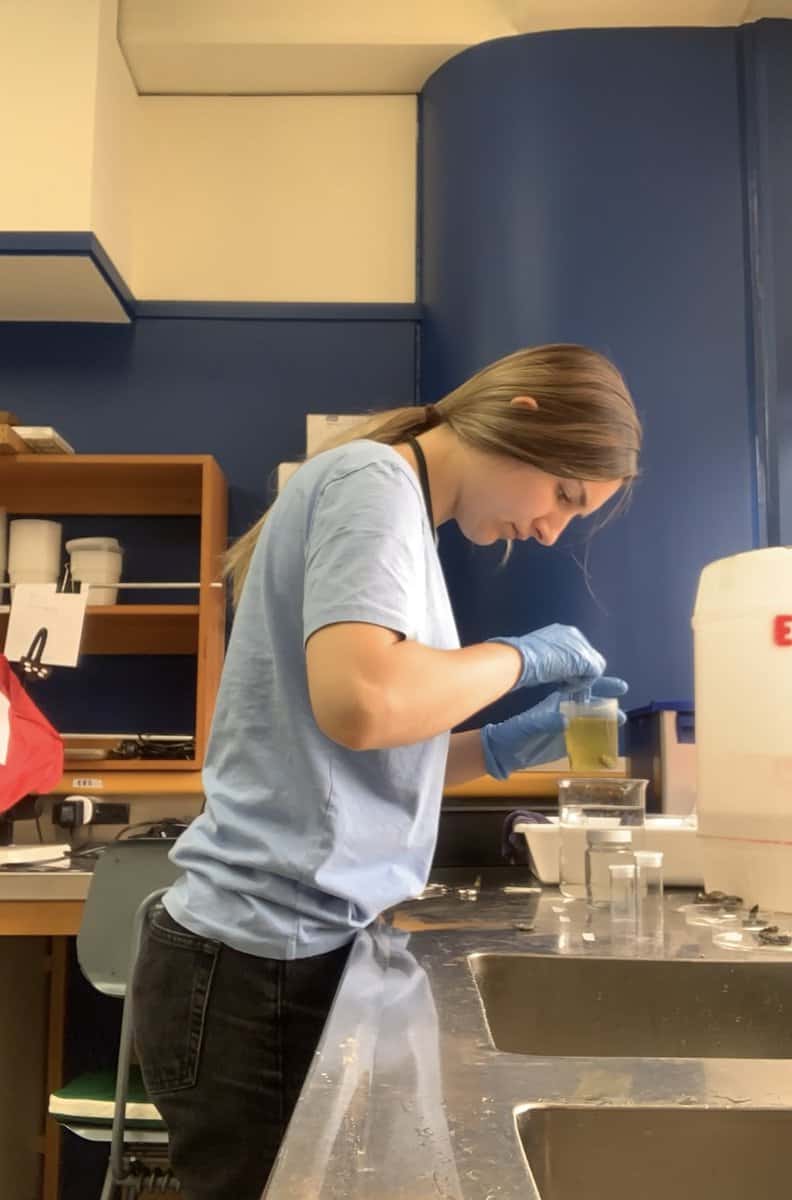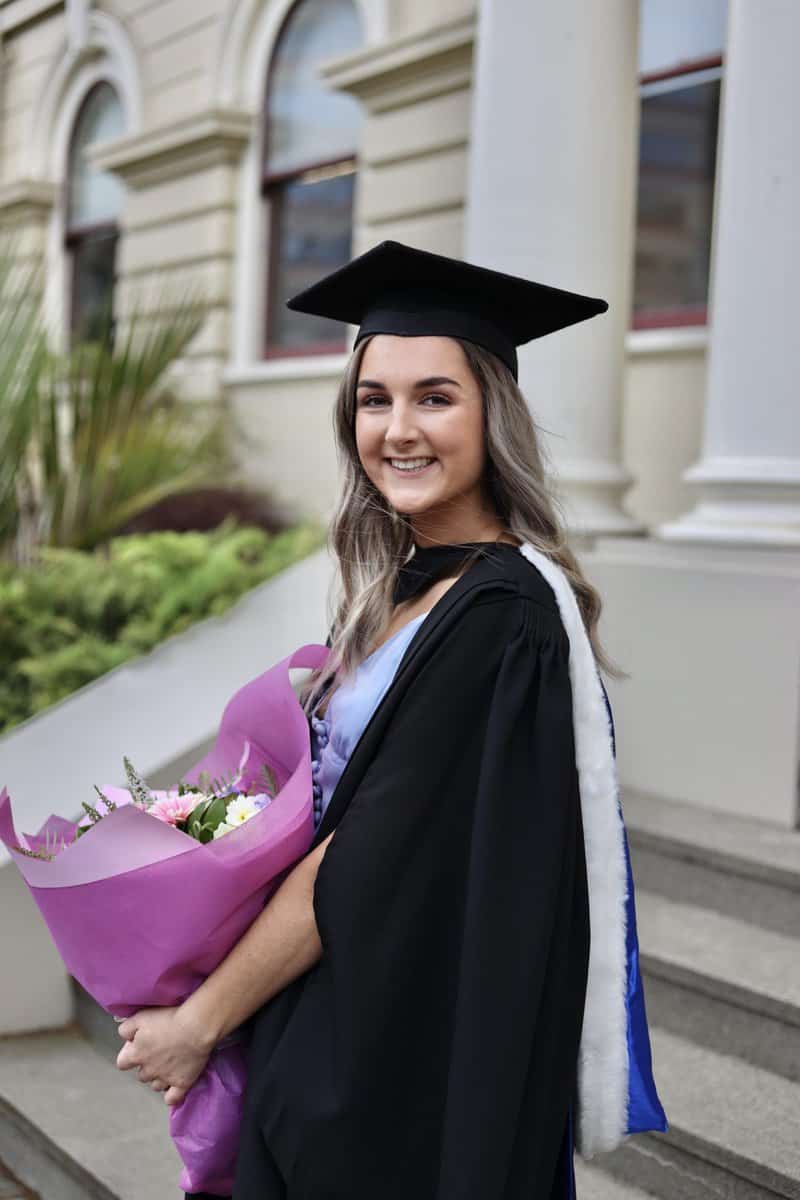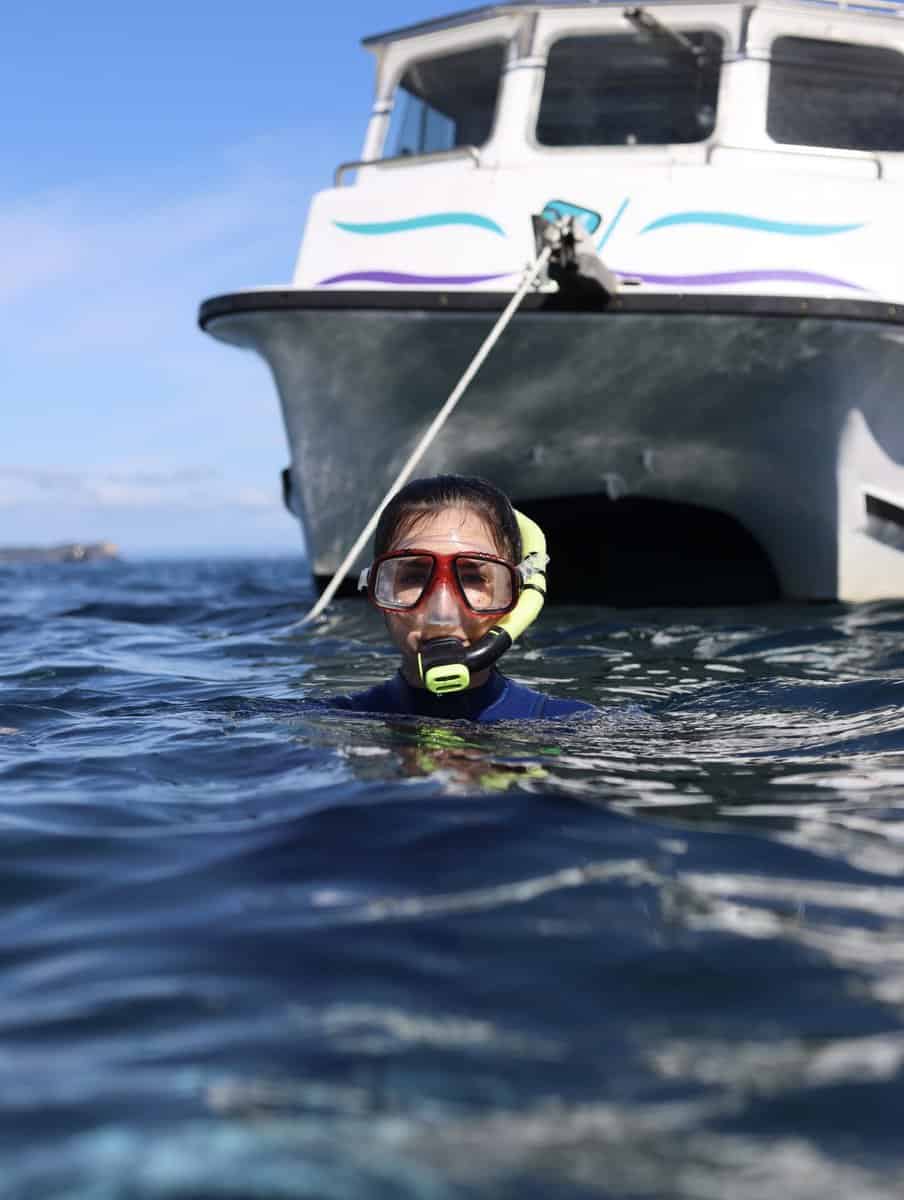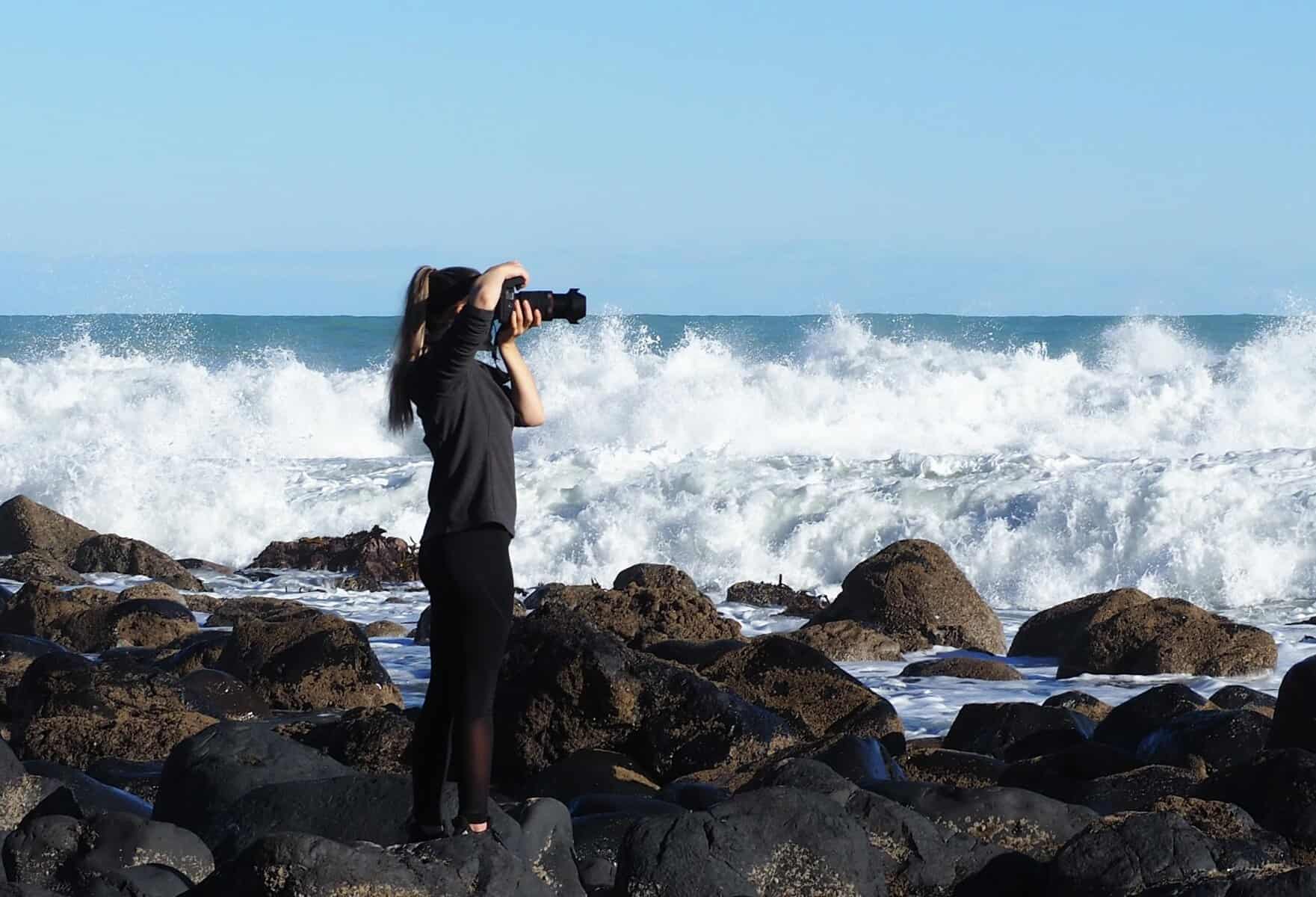


Izzy grew up on the Kāpiti Coast an hour north of Wellington.
“I had the marine reserve, Ngā Manu Nature Reserve and the Waikanae Estuary Scientific Reserve right on my doorstep,” says Izzy. “This allowed me to explore my love for New Zealand’s taonga.”
Izzy continued her exploration at Te Herenga Waka – Victoria University of Wellington, where she studied marine biology and environmental science. Through her undergraduate studies, she became interested in biosecurity and biogeography. But it was her Master’s that highlighted the power of citizen science as a way to make science accessible to everyone.
For her Master’s research project, she analysed limpets as biomonitors. Biomonitors are organisms that incorporate pollutants into their soft tissue or skeletons. Since pollutants dissipate quickly in bodies of water, the accumulation of toxins in organisms is often a better measure of environmental contaminants than just taking a sample of the water on a given day.
Izzy measured heavy metal concentrations in limpet shells to understand how heavy metal contamination in the Wellington harbour has changed over the past 100 years.
“Te Papa kindly loaned me their whole collection of limpets,” says Izzy. “A lot of these had been donated by local citizens.”
The Te Papa collection was instrumental in allowing her to complete her research project. It was also instrumental in highlighting the power of citizen science.
“Using limpets as biomonitors is a great example of a citizen science data collection strategy,” says Izzy. “It’s simple, cost effective and super accessible for everyone.”

When she saw a research fellow position at the University of Canterbury that directly supported Predator Free 2050 from within BioHeritage, she jumped at the opportunity. In this fellowship, she will be combining science and citizen science to understand the social and cultural values and preferences of community groups involved in invasive mammalian predator control.
“We’ll be developing an online software tool that produces cost-effectiveness rankings for different predator control management options,” says Izzy.
This will help groups make decisions that suit their budget, their preferences for predator control and their social and cultural values.
“It will also allow community groups to estimate the level of predator control that is achievable for them based on these constraints.”
Izzy will start by sourcing the social and cultural values held by communities that represent Aotearoa New Zealand’s diverse populations. To gather these perspectives, she will be conducting surveys and interviews. The team will then move on to more targeted interviews or focus groups in communities, to gather even finer understandings of the nuances of predator control perspectives.
“This project allows us to support the hard work that is already happening across the country,” says Izzy. “And the best way to do this is by listening to people’s experiences to date and finding ways to integrate their preferences into the online tool.”
We welcome Izzy to the team as she takes on this new role.
Jenny Leonard